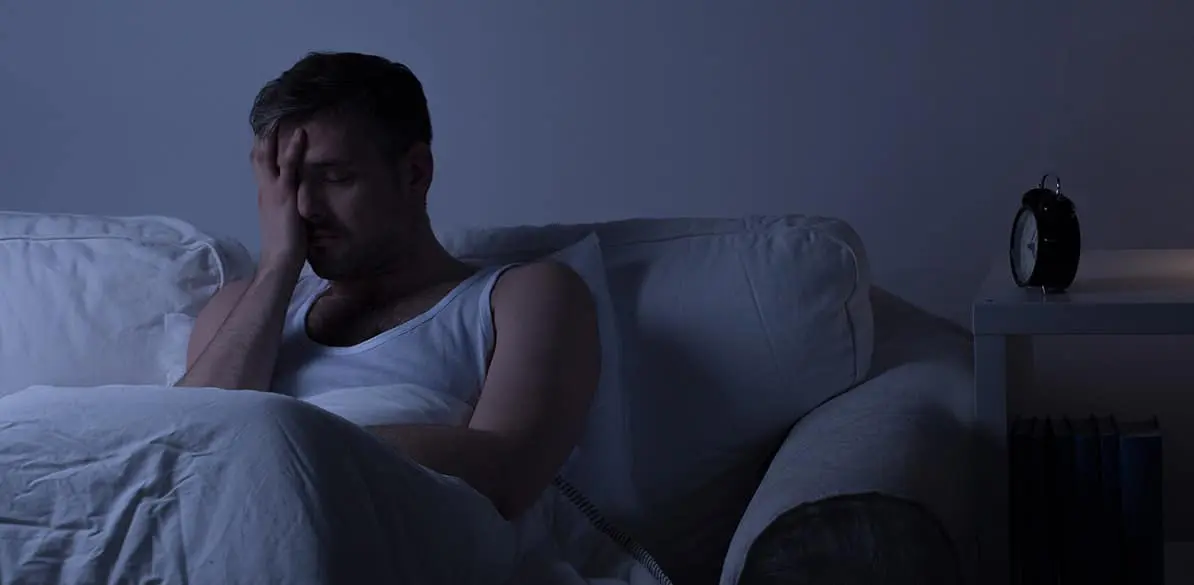Insomnia and driving

Types of insomnia
- Initial insomnia or difficulty to fall asleep is often associated with an emotional disorder such as anxiety, depression, or phobia.
- The early morning insomnia is characterized because the patient wakes up several hours before the regular hour, and can no longer fall asleep or does it restless or with unsatisfactory sleep. It is frequent in aging, and sometimes associated with depression.
- The inversion of the sleep rhythm is originated when changing schedule in a trip, disease, or damage in the diencephalon secondary to an injury or encephalitis, inappropriate use of sedatives, irregular work shifts, or obstructive sleep apnea.
Experts have discovered that the total sleep time decreases as the Body Mass Index (BMI) increases, except for the group with severe obesity.
Studies report that patients with overweight and obesity sleep 16 minutes less per day, than those people with a normal BMI.
Furthermore, the on call night work is associated with 42 minutes less of total time of sleep.
Hypnotics
In insomnia due to emotional disorders other than depression, and in common cases refractory to treatment, a temporal hypnotic medication may be required.
The drugs most commonly used as hypnotics are benzodiazepine derivatives, chloral hydrate, and antidepressants such as amitriptyline.
Insomnia from depression requires the administration of a tricyclic antidepressant, approximately one hour before going to bed.
All hypnotics involve the risk of overdose, habituation, tolerance, and addiction, as well as withdrawal symptoms, such as the temporal reappearance of the lack of sleep.
After taking these drugs, the patients should avoid activities requiring significant attention, concentration, and coordination, such as leading or operating a machine.
The most common adverse events are somnolence, lethargy and hangover, after excessive consumption of some sedatives-hypnotic. They can also lead to gastrointestinal disorders and skin rash.
With any sedative, the elderly can show restlessness, excitement or worsening of organic cerebral disorders.
Many patients take higher doses of hypnotics than they recognize, and the difficulties in speech, incoordination, tremor and nystagmus should lead to suspect an overdose.
The effects are enhanced with other CNS depressants such as alcohol, opiates, antihistamines, phenothiazines, and antidepressants.
The sharp discontinuation after long-term consumption can trigger seizures or severe tremor, which should be warned to the patient, as many patients discontinue them on their own without knowing this risk and complicating driving.
Advice on insomnia
In order to prevent insomnia and drive better the next day:
- Avoid copious or too seasoned food, do not take coffee, tea, chocolate, cola drinks, energy beverages, or beverages containing alcohol.
- A light supper free from fat should be taken, not going to bed immediately.
- Sometimes, it is recommended to take a glass of hot milk or infusion of lime-tea or valerian when going to bed.
- Perform smooth physical exercise during the day.
- Avoid physical or intellectual exercise two hours before going to bed, although it is advisable to read for some minutes something simple or listen to pleasant music, away from problems.
- A bath with hot water and relaxation exercises can be good before going to bed
- The room should be free from noises or light, and the temperature should be adequate.
- The telephone should not ring and the bed must be comfortable.
- Clothes to sleep must be soft and pleasant and the accessories that can annoy such as earrings, bracelets and watches must be removed.
- Try to look for comfortable positions to sleep.
- If you sleep accompanied by somebody who snores, try to solve the problem so that both can sleep adequately.
- It is advisable to have a regular sleep schedule when getting up and going to bed, not sleeping at daytime, and not using the bed to eat, watch the television, or remain there once awake.
- Physicians should know the drugs taken by our patient, just in case any of them causes insomnia, and warn the patient about it or change it.
- In this regard, we should advise the patient mot to self-medicate, because some over-the-counter drugs, for example for colds, can affect sleep.
- The physician will advise against driving in patients with severe insomnia, or those who have limited their ability to drive for the side effects of the drug recommended that cannot be replaced.
